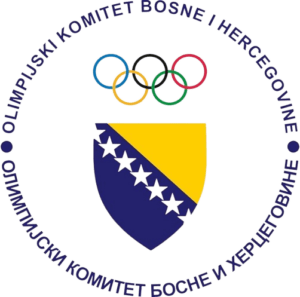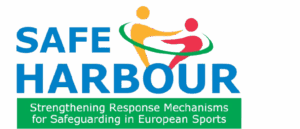The National Olympic Committee of Bosnia and Herzegovina (NOC Bosnia and Herzegovina) is pleased to be a partner in the new Erasmus+ Project named “Strengthening Response Mechanism for Safeguarding in European Sports” (SAFE HARBOUR), which is coordinated by the European Olympic Committees EU Office (EOC EU Office). This initiative is dedicated to enhancing safeguarding mechanisms across European sport, creating safer environments for all.
About NOC Bosnia and Herzegovina

Founded on 4th June 1992, NOC Bosnia and Herzegovina received official recognition from the International Olympic Committee (IOC) in 1993. As a member of the IOC, European Olympic Committees, and the Association of National Olympic Committees, it upholds the Olympic Charter, World Anti-Doping Code, and national sports laws. Since 2015, it has actively implemented Erasmus+ sport projects and established a dedicated EU-funded projects sector to ensure effective management.
NOC Bosnia and Herzegovina engages in sports development, international relations, marketing, and administration, working with athletes, coaches, sports organisations, sponsors, and media. As the national governing body, it impacts local and international sports communities, relying on strong leadership and governance.
The work of NOC Bosnia and Herzegovina on safeguarding in sports to date
NOC Bosnia and Herzegovina has been increasingly engaged in safeguarding in sports, recognising the importance of athlete protection and well-being. Currently, NOC Bosnia and Herzegovina has one employee undergoing continuous education to become a trained safeguarding officer, marking a significant step in establishing structured safeguarding measures. While Bosnia and Herzegovina lacks a comprehensive safeguarding policy in sport, NOC Bosnia and Herzegovina is committed to improving standards by integrating safeguarding education into its operations. Through collaboration with various stakeholders, including international organisations, NOC Bosnia and Herzegovina aims to implement athlete-centred and trauma-informed safeguarding approaches. It also seeks to become the primary contact point for safeguarding concerns within the national sports framework.
The role of NOC Bosnia and Herzegovina within the SAFE HARBOUR project
Within the SAFE HARBOUR project, NOC Bosnia and Herzegovina will play a critical role in tailoring the European Response framework to its national context. Responsibilities include drafting a National Strategy to guide safeguarding actions, delivering mandatory training for the leadership and National Federations, and hosting a National Multiplier Event to raise awareness among stakeholders. Additionally, NOC Bosnia and Herzegovina will engage in peer-to-peer roundtables, contribute to thematic seminars, and disseminate the project results through various channels. By actively participating in all project activities, NOC Bosnia and Herzegovina will help ensure the successful implementation and sustainability of safeguarding measures.
Background information on the SAFE HARBOUR project
The SAFE HARBOUR project, short for “Strengthening Response Mechanisms for Safeguarding in European Sport”, is a 30-month project co-funded by the European Union through the Erasmus+ Sport Programme 2024. Coordinated by the EOC EU Office, the consortium includes Thomas More and Asser Institute as experts on safeguarding, human rights and law, 2 International Federations (International Biathlon Union and International Ice Hockey Federations), and 20 National Olympic Committees (Belgium, Bosnia and Herzegovina, Croatia, Cyprus, Czechia, Denmark, Germany, Hungary, Kosovo, Latvia, Lithuania, Luxembourg, Malta, Montenegro, Norway, Poland, Portugal, Romania, Slovakia and Slovenia). Additionally, the International Olympic Committee (IOC) is involved as an outside resource.
The project seeks to strengthen the capacity of European NOCs and Federations to address safeguarding concerns by identifying gaps, developing a European Response framework, and fostering collaboration. This framework will be adapted to national contexts, complemented by training and awareness initiatives to enhance safeguarding measures at both national and European levels. Therefore, SAFE HARBOUR aims to equip partner NOCs and Federations with the tools and confidence to implement effective safeguarding measures while establishing a robust support network for Safeguarding Officers and laying the groundwork for a future IOC Regional Safeguarding Hub.

![]()